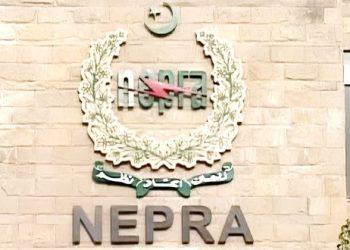ISLAMABAD: The Senate Standing Committee on Federal Education has decided to review Punjab’s model before moving forward with a proposal to provide free milk to public school students in Islamabad.
The meeting, chaired by Senator Bushra Anjum Butt, considered the proposal by Senator Sarmad Ali. Education ministry officials acknowledged the proposal’s positive intent but cited cost concerns—estimated at Rs900 million—and food safety risks due to milk’s perishable nature.
The committee agreed to study Punjab’s experience and invited stakeholders, including two private milk companies, to help design a sustainable model.
Separately, the committee reviewed the Pakistan Institute of Fashion Design (PIFD) compliance report. It stressed implementing previous directions, including ensuring 33% women representation in PIFD’s Senate, in line with PM Office directives. It also supported restricting the vice chancellor’s term to four years without extension, allowing re-selection through open competition.
“The goal is transparency and accountability. Institutions must not be overshadowed by individuals,” said the chairperson, who also called for mandatory quarterly PIFD Senate meetings and a list of federal institutions where vice chancellors have served multiple terms.
— ALSO READ —
Over 18,000 applicants qualify for KP’s Rs4 billion housing loan programme
The committee postponed debate on the “Federal Supervision of Curricula, Textbooks and Maintenance of Standards of Education (Amendments) Bill 2024” by Senator Quratul Ain Marri after heated discussion, especially around age limits for reproductive health education.
Senators Kamran Murtaza and Gurdeep Singh opposed the bill, while others proposed modifications, suggesting the content be introduced at ages 13 or 16, respecting cultural sensitivities. Senators Afnanullah and Fawzia Arshad offered suggestions to be discussed further with the education ministry.
Senator Marri said it was “unfortunate” that a bill aimed at providing children structured, age-appropriate education was being opposed. “Children already access unfiltered information online. It’s better to offer verified knowledge,” she said.
The chair echoed these concerns before deferring the bill, stating its intent was to curb abuse and misinformation and support children’s well-being through proper reproductive health education.
The Directorate General of Special Education briefed the committee on its current roles and projects. The committee urged swift finalization of a comprehensive special education policy, noting the sector still follows outdated laws predating the 18th Amendment.
Financial data showed a 2023–24 allocation of Rs950 million, with Rs886 million spent and a Rs63 million shortfall. For 2024–25, the grant is Rs726 million with projected spending of Rs840 million, creating a deficit of over Rs114 million. For 2025–26, the projected need is Rs1.43 billion, but only Rs788 million has been allocated.
Institutions under DGSE include national centres for children with visual, physical, and hearing impairments, as well as those with developmental disorders.














